G. Romero
Distributed Evolutionary Computation using REST
May 25, 2011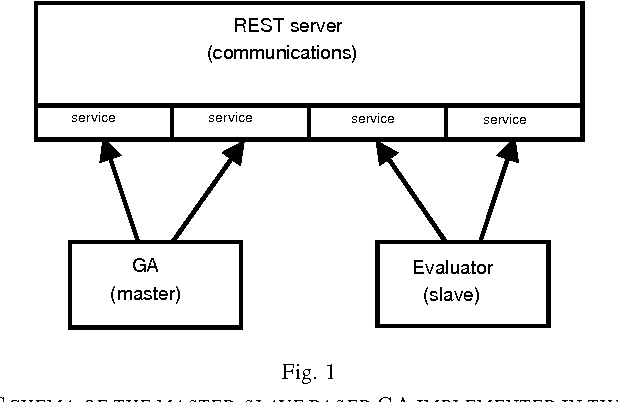
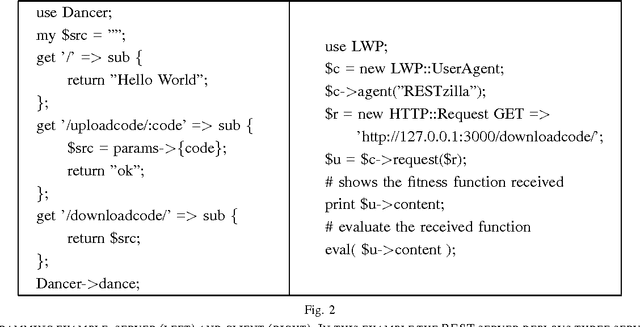
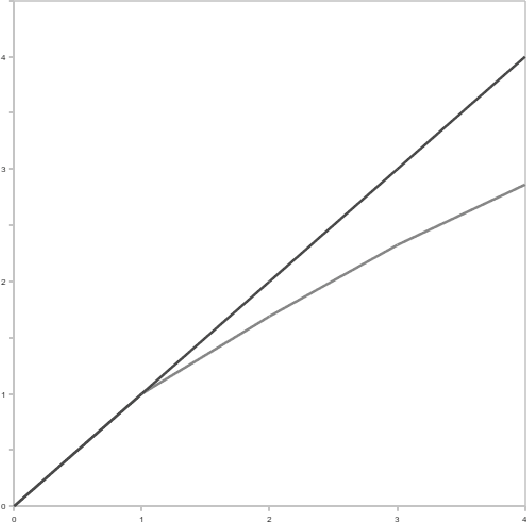
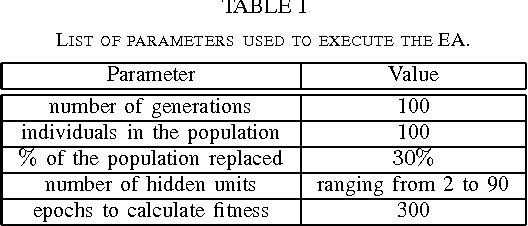
Abstract:This paper analises distributed evolutionary computation based on the Representational State Transfer (REST) protocol, which overlays a farming model on evolutionary computation. An approach to evolutionary distributed optimisation of multilayer perceptrons (MLP) using REST and language Perl has been done. In these experiments, a master-slave based evolutionary algorithm (EA) has been implemented, where slave processes evaluate the costly fitness function (training a MLP to solve a classification problem). Obtained results show that the parallel version of the developed programs obtains similar or better results using much less time than the sequential version, obtaining a good speedup.
Lamarckian Evolution and the Baldwin Effect in Evolutionary Neural Networks
Mar 01, 2006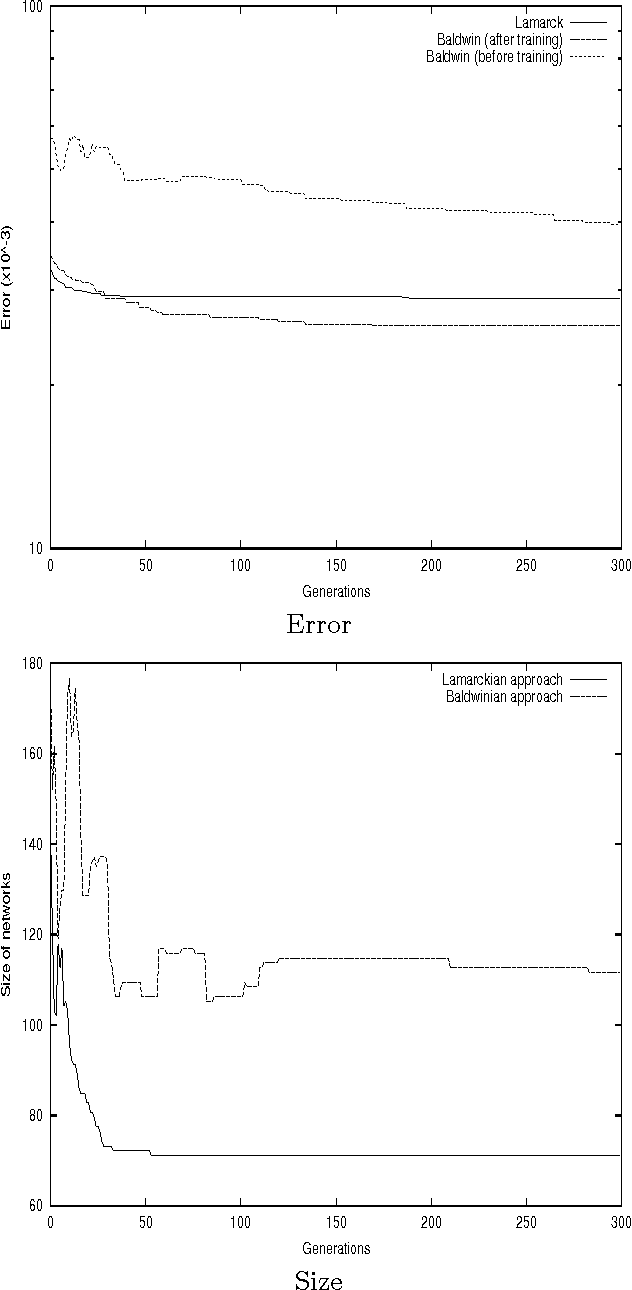
Abstract:Hybrid neuro-evolutionary algorithms may be inspired on Darwinian or Lamarckian evolu- tion. In the case of Darwinian evolution, the Baldwin effect, that is, the progressive incorporation of learned characteristics to the genotypes, can be observed and leveraged to improve the search. The purpose of this paper is to carry out an exper- imental study into how learning can improve G-Prop genetic search. Two ways of combining learning and genetic search are explored: one exploits the Baldwin effect, while the other uses a Lamarckian strategy. Our experiments show that using a Lamarckian op- erator makes the algorithm find networks with a low error rate, and the smallest size, while using the Bald- win effect obtains MLPs with the smallest error rate, and a larger size, taking longer to reach a solution. Both approaches obtain a lower average error than other BP-based algorithms like RPROP, other evolu- tionary methods and fuzzy logic based methods
 Add to Chrome
Add to Chrome Add to Firefox
Add to Firefox Add to Edge
Add to Edge